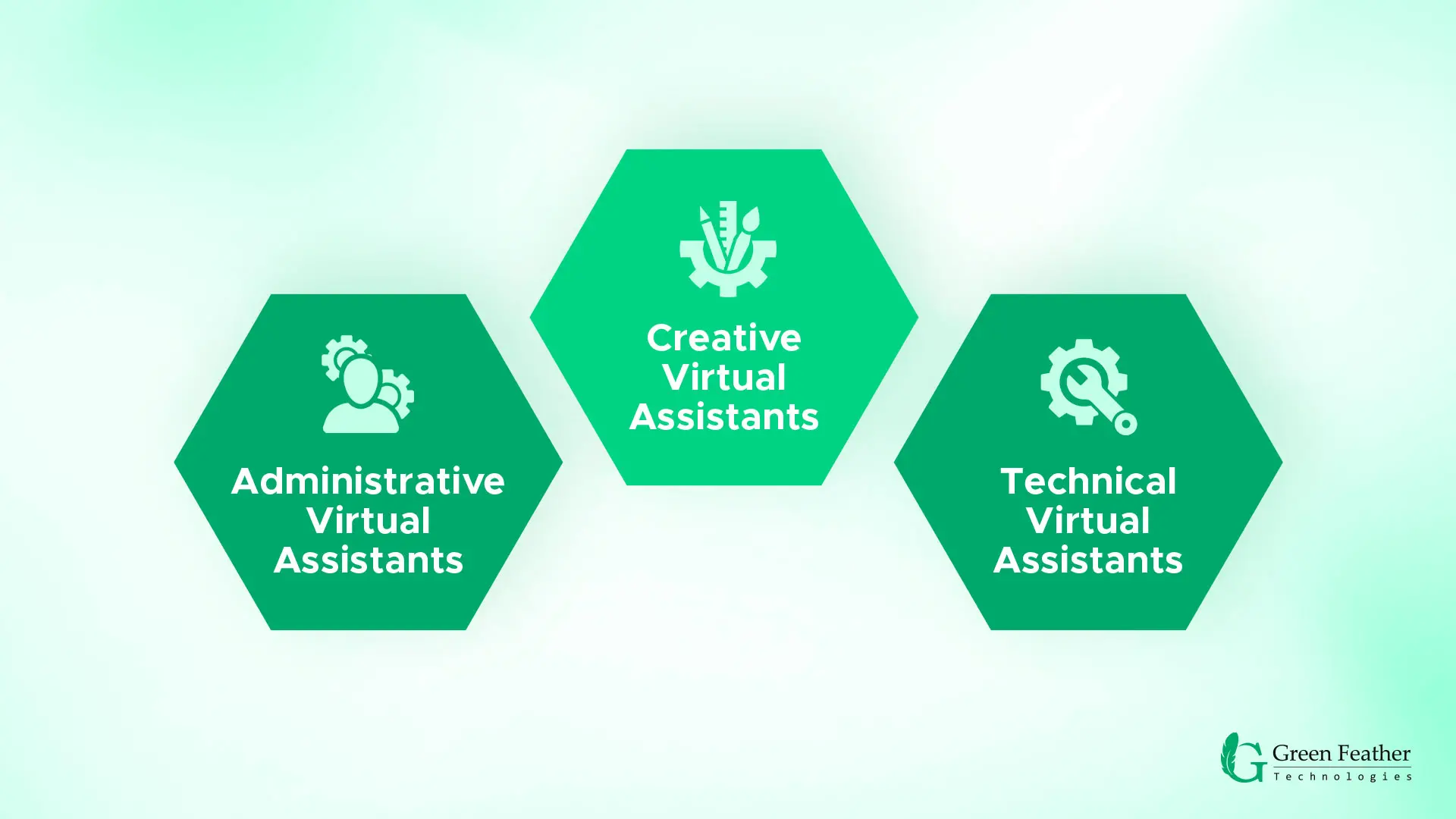A virtual assistant is a professional who provides administrative, technical, or creative services to clients from a remote location.
In recent years, the growing popularity of remote work and the increasing demand for flexible and affordable support services have led to a surge in the use of virtual assistants.
Moreover, they are experts in their field who can provide their tasks with diligence, freeing up precious time for entrepreneurs to focus on core business and expansion-related tasks.
In this article, we are going to cover a lot of things. Firstly, we are going to dissect the question “What is a virtual assistant,” and demonstrate why you need to hire a VA?
Keep reading to learn about our pro tips, tricks, and industry secrets, that will allow you to hire your best virtual assistant today.
What is a Virtual Assistant?
The general definition states that a virtual assistant is a remote, independent contractor who supports the client from outside the office.
But a virtual assistant has many definitions, depending on the services they offer.
There are certain conditions to fulfilling the criteria of being a virtual assistant. The first is that the person needs to be an expert in their respective field.
This is especially true if the VA offers specific services, such as a Real Estate Virtual Assistant, or a Social Media Virtual Assistant.
The second condition is that the VA provides multiple different kinds of support; administrative, creative, and technical.
History of Virtual Assistant
Technically, the first computer-powered “virtual assistant” was ELIZA, an MIT computer program that was able to conduct text dialogues with users. However, the concept of a virtual assistant did not exist until the early 90’s.
Initial Job of Virtual Assistants
The hired online assistants were mainly in charge of administrative and secretarial tasks. Some of their very early work was to manage emails, set appointments, and organize documents.
In the late 90’s the expansion of the internet achieved the next steps in the VA story. It made communication and sharing information very easy all over the world. In the 2010s, A mass migration of Virtual Assistants and remote work was introduced all over the world.
The Advent of AI
AI-powered virtual assistant technology shifted in February of 2010, with the invention of Siri by Apple. Although researchers began experimenting with computerized speech recognition systems in the 1950s and 1960s, the technology did not fully come to fruition before Siri.
Siri became the primary source of voice-assistantship for users worldwide. A 2022 survey reported that 55% of adults in the US used Siri as their primary source of voice assistance.
Siri revolutionized AI by assisting users with day-to-day tasks like making phone calls and scheduling meetings.
Subsequently, Alexa emerged, which is Amazon’s cloud-based voice service, reaching a market share of 70% in 2022. Alexa proved to be robust as well. Alexa could do Siri’s tasks, as well as book Uber rides for clients.
These voice-based AI assistants quickly gave rise to the Chatbot market, with AI-powered assistantships continuously growing, with the advent of ChatGPT.
However, many entrepreneurs required non-AI virtual assistants, to provide services that AI could not provide.
The Rise of Freelance Websites
The need for non-AI virtual administrative assistants gave rise to freelance platforms like Fiverr, which was launched in 2010 and quickly became the most popular freelance marketplace.
Following the success of Fiverr, Upwork was quickly launched in 2013. Currently, these two websites are the most common for finding virtual assistants. However, in the early years of these platforms, Virtual Assistantship was not a very lucrative career choice.
Post Covid Changes in the VAA Industry
All of that changed in 2019. During the COVID-19 pandemic, remote work quickly became the norm.
After the pandemic subsided, people were reluctant to go back to the office full-time. Slowly but surely, workplace culture shifted to accommodate remote and hybrid work.
Analytical and diagnostic tools made it much easier to work online. Security services became much safer. Collaboration tools became the mainstream as a result more company engagement was seen.
All of these advancements allowed Virtual Assistantship to become a viable career choice for many individuals again. Additionally, it made entrepreneurs realize how much VAs could take off their shoulders.
How Virtual Assistants Benefit Businesses?
Virtual assistants benefit businesses in a variety of ways. However, such statements may seem pointless if we are not comparing VAs with in-house employees.
Therefore, in this section, we are going to be analyzing how VAs compare to in-house employees.
Cost Effective
There are many reasons why VAs have lower overhead costs compared to employees. Firstly, they work remotely so you don’t have to pay for additional office space.
Secondly, as we mentioned before in our section covering what is a virtual assistant, VAs are not “salaried” employees. They are independent contractors.
This means you only have to compensate them for the time they put into the project, without also investing in added benefits.
We also think it’s important to note that VAs don’t have to be onboarded and trained the same way that in-house employees do.
Since they are already experts in their field, they already have preexisting knowledge and skills that they bring to the table.
Flexibility
The best thing about VAs is that you get on-demand support. This means you can hire more VAs if your company is expanding at a break-neck speed.
The number of VAs you hire is fully contingent on the support you need at any given moment. This provides more flexibility for you, and your VA.
Additionally, this also makes your business more scalable. Hiring more remote VAs will allow you to keep up with the expanding or contracting demands of your projects.
Increased Productivity
When wondering what is a virtual assistant, you may also be asking yourself how a virtual assistant can add value to your company.
The biggest benefit of hiring a VA is that your company sees increased productivity and efficiency.
This happens because hiring a virtual assistant frees up your time. When you’re not consumed with responding to emails, setting meetings, or designing social media campaigns, what are you doing? You are focusing on core business tasks, and those are the tasks that help your business grow.
Read More: Why Hire a Virtual Assistant?
Types of Virtual Assistants

We have already answered your burning question “What is a virtual assistant?”
The three types of VAs we are going to be discussing are administrative VAs, creative VAs, and technical VAs.
Administrative Virtual Assistants
Administrative virtual assistants are often the least specialized VAs because the types of tasks they help with don’t require you to niche down.
Administrative VAs can help with numerous tasks, ranging from email management, and scheduling calls and appointments, to data entry and file administrative tasks.
Administrative VAs often form the communication backbone of your company when hired.
They can keep your inbox organized, sync your calendars with clients, maintain client communication, schedule meetings, and provide data entry services.
Creative Virtual Assistants
Although marketing is a key tactic in ensuring your business flourishes, it can be tedious to handle all marketing strategies alone.
Not to mention, it can be tedious to manage and constantly update all your business social media accounts.
This is where a virtual assistant with a creative flair and expertise in marketing comes in.
Creative VAs can help you design social media and email campaigns, revamp your brand identity to generate leads, and help you with graphic design, content creation, and social media management.
Technical Virtual Assistants
Entrepreneurs often struggle with their companies because they are not IT experts. The good news is, with the advent of technical VAs, you don’t have to be.
Technical VAs are IT experts who can help you reach all your core business goals, even if you are not tech-savvy.
Technical VAs can provide IT support, help you design and manage your website, and provide all other specialized IT-related services you can think of.
Common Tasks of Virtual Assistants
By now you have a good grasp on what a virtual assistant is. Hence, in this section, we will break down what are the common tasks handled by a virtual assistant. Let’s dissect a virtual assistant’s role in the company. [Use Table]
- Bookkeeping: Your VA can keep financial records of your business and organize documentation for your benefit.
- Social Media Posting: In this technological era, frequent social media posting is the key to keeping your business alive, and generating leads.
You can easily outsource this important duty to your creative virtual assistant! - Customer Service: Your customers are your pillars. However, it can get overwhelming to handle customer service all by yourself.
Your VA can help maintain communication with customers, ensuring customer satisfaction, and improving customer service.
- Data Entry: Your VA can help with all sorts of clerical work, including various forms of data entry such as inventory maintenance.
- Project Management: Your VA can also be your project manager if they have expertise in that background; they can utilize specific skills and methods for optimum results for your projects.
Generally, your virtual assistant will help you streamline operations and take charge of your day-to-day activities, resulting in more productivity, efficiency, and long-term goal fulfillment for your company.
Essential Skills and Tools for Virtual Assistants
Virtual assistants are expected to have some level of technical proficiency. What is a virtual assistant’s usefulness if they can’t help with technical work?
There are certain tools and skills that they should demonstrably display.
First, let’s break down the skills that a VA is expected to have.
- Communication Skills: Your virtual assistant will constantly be communicating with you and your clients and customers.
Therefore, they are expected to have above-average communication skills. - Time-management Skills: Most of the projects you will assign to your VA will be time-sensitive.
Therefore, it is expected of them to maintain high time-management skills. - Adaptability: Many of your projects will have a fluid nature to them; the projects will ebb and flow, and your VAs are expected to adjust in such a situation.
They need to adapt themselves according to the company’s growth. - Technical Proficiency: VAs should have a minimum level of technical proficiency because the work demands the use of certain tools.
Additionally, they are remote employees, so they will primarily work out of a device and hence are expected to be more tech-savvy than the average individual.
Next, let’s talk about the tools you can expect your VA to be familiar with.
- Project Management Software: Using project management software is essential for businesses to stay organized and update each other about the multiple projects being juggled.
Project management software like Trello and Asana help businesses stay organized and are frequently used by businesses.
Hence, it’s expected that VAs will have some proficiency in these tools. - Communication Tools: The primary communication methods of businesses have shifted from offline meetings to online communication tools.
This is even more relevant for VAs who are remote contractors. Hence, the VAs should be proficient in online communication tools such as Google Meets or Classroom, Slack, and Zoom. - Cloud Storage: Since all the work is going to be online, there will need to be places where documents can be shared between you and your VA.
Hence, proficiency in having and using cloud storage (Google Drive and Dropbox) is essential for keeping track of important documents.
Industries That Use Virtual Assistants
By now we have hopefully sufficiently answered your burning question of “what is a virtual assistant?” Now we will move on to real-life industries that use virtual assistants.
The most common industries that rely on virtual assistants are the following:
- Real Estate
- E-Commerce
- Healthcare
- Digital Marketing
- Finance
There are a plethora of services that VAs can provide for these aforementioned agencies.
First, let’s talk about real-estate. Real-estate virtual assistants can manage property listings, create marketing campaigns, and negotiate deals with prospective buyers. They can also handle client communication while liaising with other relevant third parties.
In the e-commerce and digital marketing industries, the support of VAs cannot be underestimated.
Creative VAs flourish in these roles, helping to make advertisements, social media and email campaigns, and managing all their clients’ social media accounts.
They can help generate massive leads through their expert knowledge of marketing and sales.
The healthcare and finance industries are also seeing an uptick in companies opting for VAs.
Whether it’s transcribing medical reports and helping doctors prepare medical documentation for patients in healthcare, or generating financial reports, VAs have completely embedded themselves into these industries.
Challenges of Working with Virtual Assistants
Certain challenges are exclusive to working with Virtual Assistants. We will be dissecting them in this section. Additionally, we will also reveal how to solve these problems!
Challenges
Working with a global workforce can be rewarding. You get an unconstrained pool of experts, for instance. However, it also comes with unique practical, and logistical challenges:
- Different Time-zones
- Language and cultural barriers leading to miscommunications
- Different expectations
Changes are that your virtual assistant speaks a completely different language, has different customs, and comes from different cultural backgrounds. This may initially lead to miscommunication and clashes.
Solutions
Just because there are certain problems, does not mean you should be disheartened. There are many solutions to the aforementioned challenges of working with a VA.
- Maintain constant communication to leave less room for miscommunication
- Check in with them daily through Slack or other platforms
- Provide clear, documented instructions to your VA
- Set clear, objective, and transparent performance metrics.
How to Hire a Virtual Assistant?
The question that usually follows “what is a virtual assistant” is “how can I hire one?” We have covered a lot of ground about the definition, types, and tasks handled by virtual assistants. If you’ve read this far, chances are you are already looking to hire one!
There are three main pathways you can utilize for hiring virtual assistants: freelance platforms, VA providing specialized agencies, and LinkedIn or personal websites.
We have created a summary table for you about all the possible options, and their pros and cons below:
| Method | Pros | Cons |
|---|---|---|
| Freelance Platforms |
|
|
| LinkedIn/Personal Websites |
|
|
| VA Providing Agencies |
|
|
More detailed articles about how to hire a virtual assistant, and how to hire affordable virtual assistants – can be found online if you want to do more research!
If you are in the market for hiring a virtual assistant, get in touch with Green Feather Technologies, to experience premium VA services.
The Future of Virtual Assistants
The virtual assistant market is only expected to grow in the future. With the advent of AI-powered tools, becoming a virtual assistant has become a more lucrative job opportunity than ever. Automation tools and AI can also help virtual assistants adapt rapidly to changing company demands.
Companies are also beginning to realize the full potential of virtual assistantship, and how it can revolutionize the future forever.
The need for virtual assistants is rapidly expanding. More virtual assistant companies are offering remote or hybrid positions. Since the COVID-19 pandemic, most individuals have been reluctant to work in-house full-time, instead opting for remote positions. This trend is likely to continue in the future because the demand for online jobs keeps exponentially increasing.
The virtual assistant market share is also projected to increase. Therefore, now is the perfect time to invest in this specific market. VAship is the job of the future.
How to Become a Virtual Assistant?
Looking to become a virtual assistant soon? It’s not an easy journey, but it can be done if you have the determination.
- You must first evaluate your skills. Firstly, what are your existing skills, and secondly, where do you have room for improvement? You need to understand your strengths and weaknesses. If you don’t know a certain software or tool, now is the best time to learn it.
- You should also open profiles on freelance websites like Fiverr and Upwork. Start building your portfolio with your newly earned skills.
- Offer free services to your friends and family to build up your portfolio. You should also ask them to leave reviews for you so that potential clients can be convinced.
- Set up your business as the last step. Once you have reviews under your belt, you can work towards building a professional website.
Conclusion
In conclusion, a virtual assistant is many things: including your social media manager, your technical expert, your bookkeeper, your project manager, and your calendar coordinator.
Your VA can provide whatever support you need them to provide, in whatever capacity you require.
There are many types of VAs, each with a different purpose. VAs can help businesses offload daily tasks so that team leaders can focus on what’s the most important task at hand for their business: their core goal.
If you’re in the market and are looking for an affordable and reliable virtual assistant to transform your business forever, don’t hesitate to contact Green Feather Technologies!



